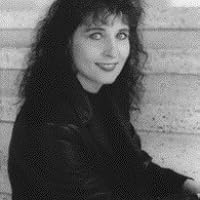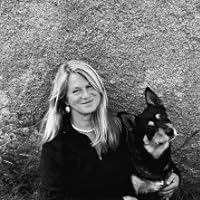Diagnosis Quotes
Quotes tagged as "diagnosis"
Showing 1-30 of 140

“I told Augustus the broad outline of my miracle: diagnosed with Stage IV thyroid cancer when I was thirteen. (I didn’t tell him that the diagnosis came three months after I got my first period. Like: Congratulations! You’re a woman. Now die.)”
― The Fault in Our Stars
― The Fault in Our Stars
“I couldn’t trust my own emotions. Which emotional reactions were justified, if any? And which ones were tainted by the mental illness of BPD? I found myself fiercely guarding and limiting my emotional reactions, chastising myself for possible distortions and motivations. People who had known me years ago would barely recognize me now. I had become quiet and withdrawn in social settings, no longer the life of the party. After all, how could I know if my boisterous humor were spontaneous or just a borderline desire to be the center of attention? I could no longer trust any of my heart felt beliefs and opinions on politics, religion, or life. The debate queen had withered. I found myself looking at every single side of an issue unable to come to any conclusions for fear they might be tainted. My lifelong ability to be assertive had turned into a constant state of passivity.”
― Get Me Out of Here: My Recovery from Borderline Personality Disorder
― Get Me Out of Here: My Recovery from Borderline Personality Disorder
“It’s true that AI can mimic the human brain, but it can also outperform us mere humans by discovering complex patterns that no human being could ever process and identify.”
― AI Doctor: The Rise of Artificial Intelligence in Healthcare - A Guide for Users, Buyers, Builders, and Investors
― AI Doctor: The Rise of Artificial Intelligence in Healthcare - A Guide for Users, Buyers, Builders, and Investors

“Calling it lunacy makes it easier to explain away the things we don't understand.”
― The Spiritualist
― The Spiritualist

“Everyone may agree upon the diagnosis, but not everyone may consent to the therapy. Indeed, for healing, things have to be sacrificed at times and separation or loss might always be heartbreak and leave scars of remorse or regret. (“Sorrow”)”
―
―
“THE MAXIMS OF MEDICINE
Before you examine the body of a patient,
Be patient to learn his story.
For once you learn his story,
You will also come to know
His body.
Before you diagnose any sickness,
Make sure there is no sickness in the mind or heart.
For the emotions in a man’s moon or sun,
Can point to the sickness in
Any one of his other parts.
Before you treat a man with a condition,
Know that not all cures can heal all people.
For the chemistry that works on one patient,
May not work for the next,
Because even medicine has its own
Conditions.
Before asserting a prognosis on any patient,
Always be objective and never subjective.
For telling a man that he will win the treasure of life,
But then later discovering that he will lose,
Will harm him more than by telling him
That he may lose,
But then he wins.
THE MAXIMS OF MEDICINE by Suzy Kassem”
― Rise Up and Salute the Sun: The Writings of Suzy Kassem
Before you examine the body of a patient,
Be patient to learn his story.
For once you learn his story,
You will also come to know
His body.
Before you diagnose any sickness,
Make sure there is no sickness in the mind or heart.
For the emotions in a man’s moon or sun,
Can point to the sickness in
Any one of his other parts.
Before you treat a man with a condition,
Know that not all cures can heal all people.
For the chemistry that works on one patient,
May not work for the next,
Because even medicine has its own
Conditions.
Before asserting a prognosis on any patient,
Always be objective and never subjective.
For telling a man that he will win the treasure of life,
But then later discovering that he will lose,
Will harm him more than by telling him
That he may lose,
But then he wins.
THE MAXIMS OF MEDICINE by Suzy Kassem”
― Rise Up and Salute the Sun: The Writings of Suzy Kassem

“Stigma against mental illness is a scourge with many faces, and the medical community wears a number of those faces.”
―
―

“No one would ever say that someone with a broken arm or a broken leg is less than a whole person, but people say that or imply that all the time about people with mental illness.”
―
―

“Mental illness" is among the most stigmatized of categories.' People are ashamed of being mentally ill. They fear disclosing their condition to their friends and confidants-and certainly to their employers.”
― Refusing Care: Forced Treatment and the Rights of the Mentally Ill
― Refusing Care: Forced Treatment and the Rights of the Mentally Ill

“You can't compare men or women with mental disorders to the normal expectations of men and women in without mental orders. Your dealing with symptoms and until you understand that you will always try to find sane explanations among insane behaviors. You will always have unreachable standards and disappointments. If you want to survive in a marriage to someone that has a disorder you have to judge their actions from a place of realistic expectations in regards to that person's upbringing and diagnosis.”
―
―
“Having DID is, for many people, a very lonely thing. If this book reaches some people whose experiences resonate with mine and gives them a sense that they aren't alone, that there is hope, then I will have achieved one of my goals.
A sad fact is that people with DID spend an average of almost seven years in the mental health system before being properly diagnosed and receiving the specific help they need. During that repeatedly misdiagnosed and incorrectly treated, simply because clinicians fail to recognize the symptoms. If this book provides practicing and future clinicians certain insight into DID, then I will have accomplished another goal.
Clinicians, and all others whose lives are touched by DID, need to grasp the fundamentally illusive nature of memory, because memory, or the lack of it, is an integral component of this condition. Our minds are stock pots which are continuously fed ingredients from many cooks: parents, siblings, relatives, neighbors, teachers, schoolmates, strangers, acquaintances, radio, television, movies, and books. These are the fixings of learning and memory, which are stirred with a spoon that changes form over time as it is shaped by our experiences. In this incredibly amorphous neurological stew, it is impossible for all memories to be exact.
But even as we accept the complex of impressionistic nature of memory, it is equally essential to recognize that people who experience persistent and intrusive memories that disrupt their sense of well-being and ability to function, have some real basis distress, regardless of the degree of clarity or feasibility of their recollections.
We must understand that those who experience abuse as children, and particularly those who experience incest, almost invariably suffer from a profound sense of guilt and shame that is not meliorated merely by unearthing memories or focusing on the content of traumatic material. It is not enough to just remember. Nor is achieving a sense of wholeness and peace necessarily accomplished by either placing blame on others or by forgiving those we perceive as having wronged us. It is achieved through understanding, acceptance, and reinvention of the self.”
― First Person Plural: My Life as a Multiple
A sad fact is that people with DID spend an average of almost seven years in the mental health system before being properly diagnosed and receiving the specific help they need. During that repeatedly misdiagnosed and incorrectly treated, simply because clinicians fail to recognize the symptoms. If this book provides practicing and future clinicians certain insight into DID, then I will have accomplished another goal.
Clinicians, and all others whose lives are touched by DID, need to grasp the fundamentally illusive nature of memory, because memory, or the lack of it, is an integral component of this condition. Our minds are stock pots which are continuously fed ingredients from many cooks: parents, siblings, relatives, neighbors, teachers, schoolmates, strangers, acquaintances, radio, television, movies, and books. These are the fixings of learning and memory, which are stirred with a spoon that changes form over time as it is shaped by our experiences. In this incredibly amorphous neurological stew, it is impossible for all memories to be exact.
But even as we accept the complex of impressionistic nature of memory, it is equally essential to recognize that people who experience persistent and intrusive memories that disrupt their sense of well-being and ability to function, have some real basis distress, regardless of the degree of clarity or feasibility of their recollections.
We must understand that those who experience abuse as children, and particularly those who experience incest, almost invariably suffer from a profound sense of guilt and shame that is not meliorated merely by unearthing memories or focusing on the content of traumatic material. It is not enough to just remember. Nor is achieving a sense of wholeness and peace necessarily accomplished by either placing blame on others or by forgiving those we perceive as having wronged us. It is achieved through understanding, acceptance, and reinvention of the self.”
― First Person Plural: My Life as a Multiple
“Janna knew - Rikki knew — and I knew, too — that becoming Dr Cameron West wouldn't make me feel a damn bit better about myself than I did about being Citizen West. Citizen West, Citizen Kane, Sugar Ray Robinson, Robinson Crusoe, Robinson miso, miso soup, black bean soup, black sticky soup, black sticky me. Yeah. Inside I was still a fetid and festering corpse covered in sticky blackness, still mired in putrid shame and scorching self-hatred. I could write an 86-page essay comparing the features of Borderline Personality Disorder with those of Dissociative Identity Disorder, but I barely knew what day it was, or even what month, never knew where the car was parked when Dusty would come out of the grocery store, couldn't look in the mirror for fear of what—or whom—I'd see.
~ Dr Cameron West describes living with DID whilst studying to be a psychologist.”
― First Person Plural: My Life as a Multiple
~ Dr Cameron West describes living with DID whilst studying to be a psychologist.”
― First Person Plural: My Life as a Multiple

“Worries about the power of a doctor's suggestions to influence and shape his patient's mind, whether they are made under hypnosis or not, are still with us.”
― The Shaking Woman, or A History of My Nerves
― The Shaking Woman, or A History of My Nerves
“...American psychology effectively guaranteed its place as a cultural icon by helping to create the pathologies it simultaneously promised to treat. (p. 37)”
― Peaceable Psychology: Christian Therapy in a World of Many Cultures
― Peaceable Psychology: Christian Therapy in a World of Many Cultures

“A diagnosis is not a prediction. It doesn’t tell you what’s possible. It doesn’t change you, your colleague, your child, or your friend. It just opens up tricks and tools to thrive.”
― Notes for Neuro Navigators: The Allies' Quick-Start Guide to Championing Neurodivergent Brains
― Notes for Neuro Navigators: The Allies' Quick-Start Guide to Championing Neurodivergent Brains
“Dividing human differences into distinct illnesses is like dividing up the color spectrum into distinct colors. While most of us can easily tell the difference between yellow and orange, we probably can't agree on exactly where yellow ends and orange begins because there is no single point at which one becomes the other. Similarly, the border between health and sickness is the judgment call we make about whether a person's symptoms are impairing their lives and warrant treatment.”
― Nobody's Normal: How Culture Created the Stigma of Mental Illness
― Nobody's Normal: How Culture Created the Stigma of Mental Illness

“Two great pains mark my grief trail like cairns:
knowing that it was going to happen, and it happening. But unlike cairns, I can never navigate back the way I came.”
― Survived By: A Memoir in Verse + Other Poems
knowing that it was going to happen, and it happening. But unlike cairns, I can never navigate back the way I came.”
― Survived By: A Memoir in Verse + Other Poems

“What if, instead of being diagnosed—being called mentally ill—what if I had been able to receive care for its own sake. To be in distress, to ask for care, to receive it. What if there were space in this world for care.”
― Committed: On Meaning and Madwomen
― Committed: On Meaning and Madwomen

“I was initially misdiagnosed with an abscessed tooth. When in reality, I had a rapidly growing aggressive cancerous tumor in my throat. Had I listened and trusted this misdiagnosis, I wouldn’t be writing this today. #truth”
― Spiritual Sugar: The Divine Ingredients to Heal Yourself With Love
― Spiritual Sugar: The Divine Ingredients to Heal Yourself With Love

“It's just, I have this vision, you know? A world where your diagnosis doesn't define you, and getting help doesn't make you weak or dangerous or other. And sometimes I forget the world isn't there yet.”
―
―

“Diagnosis is the art of discernment, of distinguishing one state from another. But how exactly do we define the boundaries of what is normal? This question has dominated the scientific investigation of addiction, and mental illness more generally, for decades.”
― The Urge: Our History of Addiction
― The Urge: Our History of Addiction
“To achieve a diagnostic assessment, it is important to remember that diagnosis does not hinge on the subjects answer to any single question on the SCID-D. A positive response regarding one dissociative symptom often has several possible ramifications, which must be explored through persistence with related questions. Isolated dissociative symptoms may occur in a number of different psychiatric syndromes, both dissociative and nondissociative. An isolated dissociative symptom, such as use of an alternate name or an amnestic episode, is insufficient grounds for diagnosis. To provide evidence sufficient for an accurate diagnosis, the symptom must exist in combination with other symptoms that, as a group, conform to the characteristic pattern of one of the five disorders oudined in the Diagnostic Work Sheets in Appendix 2.”
― Interviewer's Guide to the Structured Clinical Interview for Dsm-IV Dissociative Disorders
― Interviewer's Guide to the Structured Clinical Interview for Dsm-IV Dissociative Disorders

“Self-diagnosis is a modern day healthcare crisis.”
― Vande Vasudhaivam: 100 Sonnets for Our Planetary Pueblo
― Vande Vasudhaivam: 100 Sonnets for Our Planetary Pueblo

“Sonnet of Self-Diagnosis
Superstition is the opium of the ill-informed public,
Conspiracy is the opium of the over-informed public.
With ten minutes of googling every flipping flat-earther
feels and behaves like a reputable rocket scientist.
Human mind has a prehistoric predisposition of paranoia,
To counteract ignorance mind cooks up brilliant fantasies.
Thus scientific expertise succumbs to facebook expertise,
Facebook groups become authority on medical diagnosis.
Self-diagnosis is a modern day healthcare crisis,
Where the patient desperately tries to redeem control.
In trying to oust the experts from science and medicine,
Google certified society only heralds its own funeral.
Take people out of healthcare, and healthcare is dead.
Take doctors out of healthcare, and healthcare is damage.”
― Vande Vasudhaivam: 100 Sonnets for Our Planetary Pueblo
Superstition is the opium of the ill-informed public,
Conspiracy is the opium of the over-informed public.
With ten minutes of googling every flipping flat-earther
feels and behaves like a reputable rocket scientist.
Human mind has a prehistoric predisposition of paranoia,
To counteract ignorance mind cooks up brilliant fantasies.
Thus scientific expertise succumbs to facebook expertise,
Facebook groups become authority on medical diagnosis.
Self-diagnosis is a modern day healthcare crisis,
Where the patient desperately tries to redeem control.
In trying to oust the experts from science and medicine,
Google certified society only heralds its own funeral.
Take people out of healthcare, and healthcare is dead.
Take doctors out of healthcare, and healthcare is damage.”
― Vande Vasudhaivam: 100 Sonnets for Our Planetary Pueblo
“The value of any diagnosis is what it has to offer the sufferer.”
― Nobody's Normal: How Culture Created the Stigma of Mental Illness
― Nobody's Normal: How Culture Created the Stigma of Mental Illness

“I wish I could go back in time to my life before The News. Before my eyes would seek the arms on the clock like a tic just to calculate: A few minutes ago, my life was different. An hour ago, I didn’t know. Twenty-four hours ago, I had no idea my life was about to change forever. Friday, one week later, I have a moment of normality when I first wake up. Just a moment. A single moment before remembering. At this time a week ago, I still didn’t know. For the rest of my life, I will never not know.”
― Survived By: A Memoir in Verse + Other Poems
― Survived By: A Memoir in Verse + Other Poems

“The drought came with the volcano. Street lamps frowned through ash-made dark. Homes turned into hills with chimneys peeking out the summits. We hummed as we trudged through the wreckage, until our hums
turned into songs. We didn’t know what else to do. Tears wouldn’t water the grass. Cries wouldn’t call the birds home.”
― Survived By: A Memoir in Verse + Other Poems
turned into songs. We didn’t know what else to do. Tears wouldn’t water the grass. Cries wouldn’t call the birds home.”
― Survived By: A Memoir in Verse + Other Poems

“First I have to discover what exactly is wrong with each patient. Medical students today don't spend enough time on simple diagnostic skills. They rely too heavily on technology. But when you have a whole bunch of symptoms and a complicated medical history, you have to listen and look and use your hands.”
― A Match to the Heart: One Woman's Story of Being Struck By Lightning
― A Match to the Heart: One Woman's Story of Being Struck By Lightning
“For the United States of America, remote in a hemisphere whose isolation the war had forever destroyed, World War II was mainly an expedition, a crusade of sorts to set to rights a world gone wrong. Many Americans equated the world's troubles with Hitler, Tojo, Mussolini - or some "ism" - and honestly expected that when the symptoms of the sickness were treated, a better day would surely dawn. Government propaganda, and even business advertising, continually bolstered this hope. It was an attitude among all parties, typically American, and in the light of American history and ethos, inevitable.”
―
―

“I knew I could get help and, more importantly, get better. Because suddenly I wasn’t bad, it was bad. It was no longer me, it was something else. I wasn’t schizophrenic, or psychotic, or any of the other things I thought I was. I had Obsessive Compulsive Disorder, or OCD. In that unforgettable moment, I took back some of my power – chunks of it flooding into my psyche, called in from afar, returning home to me.”
― The Shift: A Memoir
― The Shift: A Memoir
All Quotes
|
My Quotes
|
Add A Quote
Browse By Tag
- Love Quotes 97k
- Life Quotes 75.5k
- Inspirational Quotes 72.5k
- Humor Quotes 43.5k
- Philosophy Quotes 29.5k
- Inspirational Quotes Quotes 27k
- God Quotes 26k
- Truth Quotes 23.5k
- Wisdom Quotes 23.5k
- Romance Quotes 23k
- Poetry Quotes 22k
- Death Quotes 20k
- Happiness Quotes 18.5k
- Life Lessons Quotes 18.5k
- Hope Quotes 18k
- Faith Quotes 18k
- Quotes Quotes 16.5k
- Inspiration Quotes 16.5k
- Spirituality Quotes 15k
- Religion Quotes 15k
- Motivational Quotes 15k
- Writing Quotes 14.5k
- Relationships Quotes 14.5k
- Life Quotes Quotes 14k
- Love Quotes Quotes 13.5k
- Success Quotes 13.5k
- Time Quotes 12.5k
- Motivation Quotes 12k
- Science Quotes 11.5k
- Knowledge Quotes 11k

